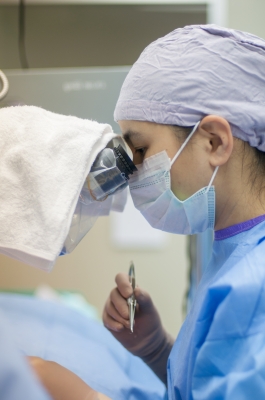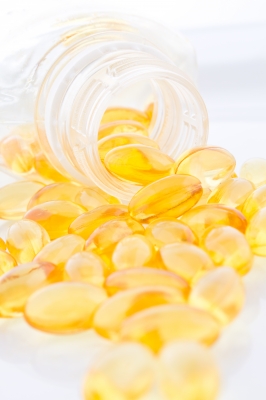Has laser eye surgery ever been linked to heart problems?

This guest post is provided by Phoebe Damien, content marketer who works in AcceleRank Web Solutions. A teacher by day and a blogger by night, Phoebe is helping businesses with content marketing. A blogger and a runner, Phoebe is also a vegan.
Few surgeries if any are completely safe, especially if you have some kind of heart problem. You might not even consider it as you lay down to get your eyes fixed, but is it possible that your laser eye surgery could cause you to suffer a heart attack?
Low risk but not entirely safe
Cataract and other types of eye surgeries are known to have very low risks of complications. This however does not mean that they are entirely safe. It is possible, although unlikely, that the stress of the laser eye surgery might lead the patient to suffering a heart attack. It is best for the patient to attend a consultation with a specialist.
Likewise, surgeons at Optilase will always do their best to screen the patients prior to the surgery in order to see if there are any risks to be considered. But even if they were able to find a problem with regards to the matter, there is nothing much that they can do in order to lower the risks of suffering a heart attack during the surgery. Here is a good thing about it though; these kinds of surgeries only require a local anaesthetic to numb the eyes – in fact it is not a very long procedure. Before patients undergo this kind of surgery, they will need to do routine testing before it is time to repair their eyesight.
Continue reading
What supplements can improve heart health and prehypertension?
 Dr. Britt Burton-Freeman is Director, Center for Nutrition Research, Institute for Food Safety and Health, Illinois Institute of Technology; Associate Research Nutritionist, UC Davis. Her research involves obesity and vascular disease inflammatory and oxidative stress responses. Her research approach includes human and basic science methodology.
Dr. Britt Burton-Freeman is Director, Center for Nutrition Research, Institute for Food Safety and Health, Illinois Institute of Technology; Associate Research Nutritionist, UC Davis. Her research involves obesity and vascular disease inflammatory and oxidative stress responses. Her research approach includes human and basic science methodology.
Dr. Burton-Freeman has shared with us information on supplements and their effectiveness for improving heart health.
Fish oil omega 3 fatty acids
Studies investigating fish oil omega-3 fatty acid supplementation have shown improvements in CVD risk factor reduction. Specifically, fish oil omega-3 fatty acids aid in lowering triglycerides in the blood and help raise HDL. Fish oil omega-3 fatty acids also help to reduce inflammation and are also involved in platelet function, reducing blood clotting time. Hence, too much fish oil can increase the risk of bleeding and hemorrhagic strokes. Elevated blood pressure is another risk factor for CVD. High doses of omega 3 fatty acids have been shown to lower blood pressure in people with hypertension. Consuming > 3 g of fish oil omega 3 fatty acids is advised only under the advice and monitoring of a physician.
Lycopene
Continue reading
Eating Red Meat Increases Heart Disease AND Cancer Risk

Red meat and processed meats are connected to cancer according to the World Health Organization (WHO).
Researchers noted in 2014 studies indicating a high consumption of red meat or processed meat to slightly increase cancer risk. Therefore, the International Agency for Research on Cancer (IARC, a part of WHO) decided to evaluate red meat and processed meat to provide solid scientific evidence regarding cancer risk and red meat/processed meat consumption.
Processed meats: carcinogenic to humans
Processed meats are meat products produced by salting, fermenting, curing, smoking, or other technique to enhance preservation and flavor. Some examples of processed meat include hot dogs, sausages, ham, beef jerky, salami, corned beef, pepperoni, spam, and bologna.
The IARC classified processed meats as Group 1, carcinogenic to humans. This means there is enough evidence to support processed meat as cancer causing.
Tobacco smoking and asbestos are also classified as Group 1. However, the IARC is careful to clarify this does not mean processed meat is equally as dangerous to your health as tobacco smoking and asbestos. The group classifications only indicate strength of scientific evidence, not degree of risk.
Red meats: probably carcinogenic to humans
Red meat includes beef, pork, veal, and lamb. The IARC classified red meat as Group 2A, probably carcinogenic to humans. Red meat studies were more limited than processed meat studies, but did show an association between red meat consumption and colorectal cancer. However, current studies cannot rule out other potential explanations for the increased cancer risk. Therefore, classified as Group 2A, probably carcinogenic. In addition to colorectal cancer, an association was seen between red meat consumption and stomach cancer…but again, no conclusive evidence.
High temperature preparation and carcinogens
Raspberries to Promote Heart Health

Raspberries are low calorie, convenient, great tasting, and provide a variety of nutrients. An excellent addition to your diet.
Fiber to lower cholesterol
Fiber is a key nutrient to combat high cholesterol levels and promote heart health. Dietary fiber binds to cholesterol in circulation and helps remove it from the body. Raspberries provide 12.5 grams/100 kcal (Calories).
For comparison…
High fiber cereals = 6 g fiber/100 kcal
Apple = 4.6 g fiber/100 kcal
Banana = 2.9 g fiber/100 kcal
Grapes = 1.3 g fiber/100 kcal
Most American’s consume about half the daily fiber recommendation of 25 to 35 grams per day. Raspberries are a useful tool for easily increasing your fiber intake. One cup of raspberries provides 8 grams of fiber.
Anthocyanins to lower blood pressure
Endothelial function is compromised with atherosclerotic disease. By providing the body with enhanced oxidative defenses, such as anthocyanins, you increase the nitric oxide released to relax blood vessels leading to vasodilation. This vasodilation promotes lower blood pressure levels. The anthocyanins found in raspberries have been shown to promote vasodilation of blood vessels in studies.
A little chemistry explanation
Quick chemistry lesson so you can better understand a couple terms.
Continue reading
Does Plastic Surgery Affect the Heart?
I read an article in Time magazine recently discussing how plastic surgery procedures are now going to be the norm for a majority of Americans. I really didn’t enjoy the message of the article, but the fact is people do have plastic surgery…including those who may have heart issues.
This guest post is provided by Phoebe Damien, content marketer who works in AcceleRank Web Solutions. A teacher by day and a blogger by night, Phoebe is helping businesses with content marketing. A blogger and a runner, Phoebe is also a vegan.
Does Plastic Surgery Affect the Heart?
Just like any other operation plastic surgery is a major surgery and is associated with some risks. Patients with a heart condition may be at a higher risk of developing complications such as blood clots or deep vein thrombosis. But this does not mean that such people cannot have a facelift due to their history.
First we need to understand what plastic surgery is and the various procedures. Basically, plastic surgery is a reconstructive procedure used to correct abnormal structures in the body. It is typically performed to improve functions; however it is sometimes performed when a normal appearance is desired. There are different types of surgeries that can change or enhance your look. The popular procedures that are common today are rhinoplasty, liposuction, eyelid surgery, facelifts, breast augmentation and tummy tuck.
Patients must be screened beforehand to ascertain their medical fitness. They should also have appropriate post care after the surgery to help them with the recovery process. It is a safe procedure for perfectly healthy individuals with no history of heart disease.
Add Mushrooms to Your Diet to Reduce Heart Disease Risk
 More research is linking vitamin D deficiency as a risk factor for heart disease.
More research is linking vitamin D deficiency as a risk factor for heart disease.
Not truly a vitamin, Vitamin D acts as a hormone that regulates over 200 genes. Some functions of vitamin D include:
- Aids in absorption of calcium within in intestinal track
- Necessary for blood clotting
- Aids in secretion of insulin from the pancreas to regular blood sugar levels
- Stimulates mineralization of bone cells
- Necessary for thyroid function
What causes vitamin D deficiency?
Continue reading



